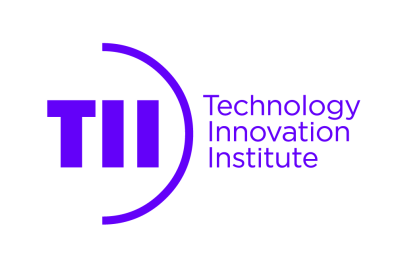Abu Dhabi and the UAE moved one step closer to achieving the quantum advantage in August 2021 with the unboxing of the region’s first-ever quantum computer at the Technology Innovation Institute (TII). The 300-part super-chilled giant cryostat that arrived in Abu Dhabi all the way from Finland, is like the frame of the quantum computer – with refrigerators capable of cooling the computer’s brain to 10 millikelvin (mK) or -273.14 Celsius, which is colder than anywhere in outer space.
While the race is already on to beat the 53 qubits that IBM claims its quantum computer comprises, TII’s Quantum Research Center (QRC) team is happy to start small and work to get things perfect – one part at a time. The infinitesimal lifespan of qubits and their highly unstable nature make it difficult for quantum researchers to ensure they check off each box in the right order when it comes to assembling a quantum computer.
The helium dilution refrigerators use a mixture of helium isotopes to cool the quantum chips or the brain of the computer in order to maintain the quantum information. A dilution fridge comprises six levels – the top one is at room temperature, with the temperature steadily dropping in the lower levels until the device can achieve the extremely low temperature of 10 milikelvin (mK) – one-hundredth of the temperature of outer space - which is necessary for the quantum chip to operate.

So, what is a quantum computer and what is all the fuss about? Well, in the digital age we live in, where data encryption is critical and security and confidentiality of information are the biggest currency for any nation or critical infrastructure, a quantum computer is set to be a game changer of sorts – offering a force multiplier impact in enhancing computational efficiency and providing multiple solutions to some of the core challenges already confronting our world - as well those set to shape the future.
A quantum computer uses quantum mechanics phenomena such as ‘superposition’ and ‘entanglement’ to manipulate subatomic particles like electrons – that are used as quantum bits (also known as ‘qubits’) - to create exponentially stronger processing powers and help perform certain complex calculations that would take much longer to solve even by the world’s most powerful classical supercomputers. Traditional computers use bits arranged as combinations of ones and zeroes while quantum computers use qubits in which particles can exist in two states at the same time – thereby, increasing their computing power through allowing them to evaluate multiple outcomes at once. Google, for instance, won acclaim in 2019 after its prototype quantum computer took just minutes to complete a calculation that researchers estimated would have taken a supercomputer 10,000 years.

The quantum computer once it becomes a reality, could prove invaluable in a variety of fields – from discovering new medicines to designing better batteries, and helping in multiple artificial intelligence applications. Not all problems can be solved through quantum computers – but for the specific ones they can tackle, they will offer an unprecedented computational advantage. TII is aiming through such ambitious quantum projects to develop advanced technology leadership in the region and ensure the UAE’s progress into a strong knowledge society.
With his diverse experience, ranging from the University of Barcelona to CERN and MIT, Professor José Ignacio Latorre, Chief Researcher of QRC, is no stranger to industry defining projects and looks forward to shaping this one – which, despite all the fanfare attached to, he believes, is important for the value it will bring to different fields. He recalls the first time he witnessed the creation of a qubit - nearly seven years ago.

Although qubits are not visible to the naked eye, their presence is confirmed by firing photons at the particle and measuring the reaction. Qubits can ‘capture’ photons and lead to a visible reading on lab monitors. He remembers the perfect dip – which is technically, simply a line on the screen. But the excitement is palpable among the scientific community. The response of the unboxing of Abu Dhabi’s quantum computer, in the same way, has been overwhelming.
As Prof. Latorre points out, “Our world today is all about achieving the next big breakthrough – and in the world of quantum phenomena, the quantum computer has been the discovery science that everyone is waiting to see become a reality. We are also working on several related quantum processes, because as with all scientific developments of this scale, they cannot exist in isolation and need an ecosystem to thrive. For instance, the Cryptography Research Center (CRC) at TII is working to develop post quantum cryptography algorithms – they will become an imperative to safeguard security and confidentiality of information in the era of quantum computers.”





